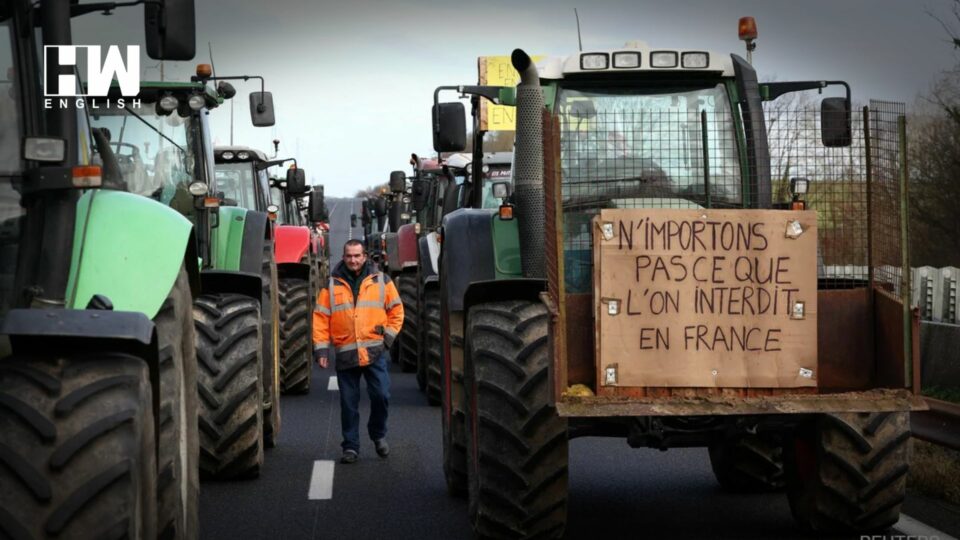Farmers protests have erupted across Europe, with thousands of tractors blocking highways and access roads in acts of frustration over rising costs and perceived neglect by governments. The epicentre is in France, where over 100 blockades have brought traffic to a standstill. But similar scenes are unfolding in Belgium, Netherlands, Germany, Spain and beyond.
Also Read: Budget 2024: PM-Kisan Payouts, Housing, Jobs On Priority
French farmers are demanding action to address declining incomes, high taxes, complex regulations, and unfair competition. Many are struggling to cope with soaring prices for fuel, fertilizer and animal feed, as well as looming environmental rules like pesticide bans and required fallow farmland. They feel disregarded and that their living is under threat.
The protests intensified this week as convoys of tractors drove towards Paris, aiming to disrupt food distribution hubs and supermarkets. Over 90 farmers were arrested trying to blockade Rungis International Market near Paris, which feeds millions daily.
In Belgium, farmers obstructed access roads to the major Zeebrugge container port. Groups across Europe plan to converge on Brussels to pressure EU leaders at a summit to respond to their grievances.
At the heart of the unrest is a growing disconnect between farmers and policymakers. Farmers believe they are unfairly blamed for pollution and climate change without regard for their economic welfare. They want policies tailored to support small, family-run farms rather than large aggregators.
Governments are scrambling to react. France backpedalled on subsidy cuts for agricultural diesel and eased some environmental rules. But farmer groups say promises of paperwork reductions and trade protections are inadequate. With livelihoods on the brink, they plan to continue protests until securing meaningful change. The coming days will test whether policymakers heed their demands or crack down harder.
As an independent media platform, we do not take advertisements from governments and corporate houses. It is you, our readers, who have supported us on our journey to do honest and unbiased journalism. Please contribute, so that we can continue to do the same in future.

